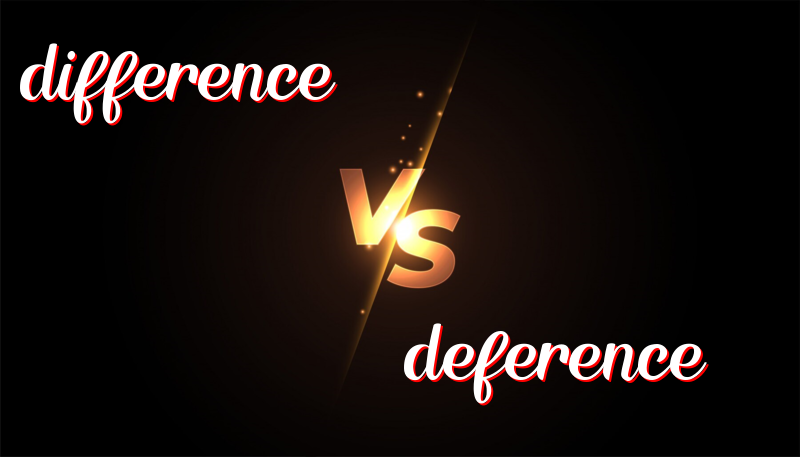Differentiate Yourself: The Respectful and the Unlike!
Difference vs. Deference
Even though “difference” and “deference” look alike, they do not mean the same thing. Let’s look at what each word means and how to use them.
Difference
What it means: “Difference” is used to show that things are not the same.
Word history: The word “difference” comes from Latin “differentia,” which means “a distinguishing” or “a separation.”
How to use it: You use “difference” when you want to talk about how one thing is not the same as another thing.
Trick to remember: Think of “difference” when you compare two things or when you see how they are not alike.
Example sentences:
- There’s a big difference between a cat and a dog.
- Can you tell me the difference between these two colors?
- The difference in their heights is easy to see.
- I don’t understand the difference in those math problems.
- Learning about the difference in cultures is fun.
Deference
What it means: “Deference” is about showing respect or being polite to someone, especially if they are older or more experienced.
Word history: The word “deference” comes from the Latin “deferre,” which means “to carry down” or “to offer.”
How to use it: You use “deference” when you want to show respect or give in to another person’s wishes or opinion.
Trick to remember: Think of “deference” when you show respect to someone’s ideas or wishes.
Example sentences:
- He showed deference to his teacher by listening carefully.
- In deference to her age, they gave her the best seat.
- I showed deference to my friend’s opinion, even if I did not agree.
- The children spoke with deference to the elderly guests.
- She followed the rules in deference to her parents’ wishes.
Summary
In summary, “difference” is used when talking about things that are not the same, while “deference” is about showing respect or being polite. If you’re comparing things, think of “difference.” If you’re thinking about respect, remember “deference.”

Leave a Reply
You must be logged in to post a comment.